272: X-Factor V3 # 10 - 24 (Madrox’s Missing Dupes)
- Matt Campbell
- May 9, 2025
- 12 min read
Updated: May 19, 2025
What’s Covered?
X-Factor Volume 3 #10 - 24.
Roster Watch

Synopsis
10 - 12: Singularity Investigations Resolved
Writer - Peter David
Pencils - Renato Arlem, Roy Allan Martinez
This arc throws X-Factor Investigations into the deep end, escalating Peter David’s layered narrative with government conspiracies, ethical dilemmas, and metaphysical threats. The opening beats are intimate and messy—Jamie Madrox grapples with the consequences of defying Cyclops and the government, but more pressingly, with the chaos caused by his dupes sleeping with both Monet and Theresa. It’s funny, awkward, and dark—pure X-Factor.
The tension sharpens when a defecting scientist from Singularity Investigations (SI) warns the team about a mutant-targeting virus. Jamie’s panic hints at Legacy Virus trauma, and for good reason—SI seems intent on wiping out mutants in the name of a grim prophecy. Meanwhile, Rictor visits Quicksilver in a desperate move to restore his powers, only to be met with Pietro’s twisted take on divine worthiness.
Then comes the gut punch: Guido, who took a literal rocket to the back, is revealed as a sleeper agent triggered by Tryp. Under mental compulsion, he murders the scientist with a brutal throat punch, and even Layla’s precognition fails to anticipate it. Tryp’s hold over time—living past, present, and future simultaneously—emerges in a chilling confrontation at SI HQ. Damian Tryp Sr. may have murdered Jamie’s parents, and now presents himself as a time-bending threat determined to prevent a future where powered mutants rule...and destroy…the world.
The arc ends with sacrifice and revelation. One of Jamie’s dupes blows himself up, taking two versions of Tryp with him. But the spectral version survives long enough to threaten Layla. In typical Layla fashion, she doesn’t flinch. But for readers, the stakes are now terrifyingly clear: X-Factor’s mission may save mutantkind—or doom it.
13-14: Therapy, Throwdowns, and Truth Bombs
Writer - Peter David
Pencils - Pablo Raimondi
In a perfect change of pace, Peter David pauses the timeline-hopping chaos for an introspective two-parter that doubles as a therapy session—and a battlefield. Issue #13 is framed around one-on-one counseling, offering a raw and vulnerable lens into the X-Factor team’s fraying psyches. Guido wrestles with guilt over the murder he committed while under Tryp’s control, asking the devastating question: what if part of him wanted to kill? Layla, ever the enigma, reveals her alien view of the world, more perceptive than precognitive. Rictor plays it cool but clearly masks confusion and pain, while Siryn glows with optimism—convinced her father Banshee faked his death. Monet, unsurprisingly, is a fortress of denial and trauma, unpacking her captivity and complicated bond with Siryn... all while casually mentioning she enjoyed her time with Jamie.
Quicksilver, ever delusional, clings to his messiah complex, claiming he's better off powerless. But the emotional detonation comes when Jamie finally confesses to Monet about sleeping with Siryn. Her reaction is kinetic—she hurls him out a window.
Issue #14 keeps the fallout going. Monet and Siryn are barely speaking to Jamie, and Monet cycles through dupes, slamming them into walls to find the “guilty” one. Rictor and Jamie share a surprisingly sincere bar talk, where Rictor dances around admitting his sexuality and hints at a complicated connection with Quicksilver. It’s raw, sad, and incredibly real. Meanwhile, Layla works behind the scenes to mend fences between Monet and Theresa—successfully—and they celebrate by flying to Paris for a shopping trip. It’s absurd, and it’s wonderful.
The arc ends with Jamie attempting to reabsorb one of his long-lost dupes—now a SHIELD agent—only to be blocked by Val Cooper. His pursuit leads straight into the clutches of Hydra, reminding us that while emotional healing is vital, the real-world threats haven’t gone anywhere.
15: Hydra, Dupes, and Damage Control
Writer - Peter David
Pencils - Pablo Raimondi

This issue zooms in on Jamie Madrox, who finds himself imprisoned by Hydra after a botched attempt to reclaim one of his rogue dupes. Peter David uses the captivity as a slow-burn psychological duel, with Jamie trying to outmaneuver Hydra’s manipulations while questioning how much of himself is still out there, uncontrolled and unchecked. It’s a one-man espionage thriller laced with Madrox’s trademark dry wit and creeping dread.
The larger team doesn’t appear much, but the emotional continuity remains strong—this is a natural continuation of Jamie’s arc, where the consequences of fragmentation, secrets, and past decisions keep catching up to him. Even when he escapes, there’s no clean win—just more questions, more baggage, and more versions of himself slipping through his fingers.
Meanwhile in Paris, Monet and Siryn come to the defense of de-powered mutants who are being targeted by hate-filled humans.
16: Preacher!
Writer - Peter David
Pencils - Pablo Raimondi

Jamie Madrox’s journey to reclaim his scattered dupes takes a soulful turn in this standout issue, as he tracks down a version of himself who’s found faith, family, and a new identity as a small-town preacher. What should be a simple re-absorption becomes a crisis of conscience—this dupe isn’t just wearing a new name, he’s built a life. A wife. A child. And when push comes to shove, he’s willing to protect it at gunpoint.
Peter David once again weaponizes Jamie’s powers for introspection. This isn’t just about physical duplication; it’s about splintered paths and lives that could’ve been. Jamie chooses not to reabsorb him, marking a major shift in his character. No second-guessing. No guilt. Just clarity. For once, he doesn’t want to pull someone back into himself—he wants to let them live.
Meanwhile, Monet’s sharp edges soften just slightly as she chooses to care for an orphaned de-powered mutant. Siryn, overwhelmed and suspicious of Monet’s motives, spins out emotionally, but the gesture signals Monet’s subtle evolution: still cold, still commanding, but maybe starting to care.
This quiet, powerful issue underscores what makes X-Factor so compelling—it’s not just the mutant drama or the noir investigations. It’s the constant question: who are you, really, when every choice splits you in a new direction?
17 - 20: X-Cell
Writer - Peter David
Pencils - Khoi Pham
Jamie’s hunt for his wayward dupes continues in haunting fashion, this time uncovering one who’s spiraled into alcoholism and despair. This detective dupe doesn’t just resist re-absorption—he’s terrified of it. Jamie’s powers have always made identity complicated, but here, it’s about protecting trauma. The dupe kills a dirty cop in a blaze of justice and bullets, and Jamie is left wondering just how much of that pain he can—or should—take back into himself.
Meanwhile, Wolfsbane and Rictor try to do the right thing and end up arrested by undercover FBI agents, a moment that blurs the line between heroism and criminality. Their arrest coincides with the rise of X-Cell, a rogue group of de-powered mutants who believe the government holds the key to restoring their powers. Led by a dwarf who initially appears to be a child, X-Cell turns to Quicksilver, who’s all too happy to play savior.
Layla, ever the puppet master, insists X-Cell will burn itself out and sends the team on a misdirection mission that leads to a street brawl with de-powered versions of Blob, Fatale, and Marrow. The tension escalates quickly—Siryn is stabbed by Marrow, and Rictor is mocked for his sexuality in a gut-wrenching exchange with Blob. These scenes reinforce the central truth of this arc: everyone is losing control in different ways.
Madrox absorbs a poisoned dupe and risks death in the process, raising fears that he’s courting self-destruction. Rahne’s bond with Guido frays as she spends more time in wolf form, and Pietro continues feeding into his messiah complex, claiming Rictor has a unique connection to the Earth that could unlock mutant restoration.
It all culminates in issue #20, a brutal, explosive climax. Quicksilver is outed by Layla as the true cause of M-Day’s aftermath. Rahne may have torn out Reaper’s throat. And worst of all, those X-Cell members “healed” by Pietro’s Terrigen-powered touch begin to violently explode. Pietro’s miracle cure was a ticking time bomb. Rictor’s powers return just long enough to rip the crystals from Quicksilver, a symbolic and literal rejection of the false hope he offered.
This arc is chaotic, violent, and deeply sad—a perfect reflection of post-M-Day desperation and the dangerous allure of easy answers.
21 - 24: Huber
Writer - Peter David
Pencils - Pablo Raimondi, Valentine De Landro (co. on 24)
The final arc of this stretch is a perfect storm of emotional fallout, twisted ideologies, and existential threats. Jamie, finally trying to clean up the mess he’s made, attempts to reconcile with both Siryn and Monet. Theresa offers him grace—saying she still has his back—while Monet goes full Monet, coolly asking who was better in bed. Jamie knows the answer (it’s Monet), but he’s smart enough not to say it aloud. Too late. The damage is done.
Elsewhere, things get weird and dangerous fast. A mysterious figure stalks Nicole, the French orphan Monet has taken in. Rahne comforts a brooding Rictor—and then undresses, sparking a complicated, impulsive encounter. Meanwhile, Monet has a bout of nausea and Nicole finds a positive pregnancy test. For the first time, we’re left wondering if Monet might be carrying Jamie’s child.
Amid all this personal drama, X-Factor is hired to investigate a Purity cult—an anti-mutant group with chilling reach. Monet and Siryn are kidnapped at a Purity concert, and a strange political figure named Roger Huber begins pitching Jamie on registering mutants as endangered species. Huber’s true power reveals itself quickly: manipulation, charisma, and eventually, terrifying mutant mimicry. He creates a spectacle—a million-mutant march formed from illusions—and even tricks Beast and Cyclops. Only Rictor sees through the lie.
Nicole’s heel turn is one of the most shocking moments of the run. She smashes Layla with a brick and throws her over a bridge, hinting that she’s working for Huber. Quicksilver saves Layla...then tries to kill her himself in a moment of unstable delusion. Layla escapes, of course—she always does—but Nicole is revealed to be a robot designed to eliminate her. Layla, unfazed, gets the robot hit by a train. Iconic.
The arc climaxes in a snowbound wasteland where Huber has teleported Jamie, Guido, and Rahne. His true identity comes into focus: a mutant with access to every mutant power, the mastermind behind the Purity cult, the arming of X-Cell, and the manipulation of Singularity. His god complex is matched only by his ego, but Rictor—ironically the only one without powers—proves to be his foil. Somehow, Rictor resists Huber’s abilities, becoming the unexpected anchor in a world unraveling.
In the end, Huber is defeated, but not destroyed. He retreats, wounded but alive, promising more chaos in the future. For X-Factor, it’s another brush with annihilation. For us, it’s just another brilliant chapter in one of Marvel’s smartest, most emotionally honest team books.
My Connections and Creators
Boring or Great?
I'm giving this a 10 out of 10 as Peter David continues to shine with this extremely character driven series. The "love triangle" between Jamie, Theresa, and Monet was super fun. The villains of X-Cell and Huber were lackluster, but that doesn't detract much from my enjoyment of the overall series. David has been able to take Madrox's seemingly forgettable power and turn it into a monthly tale of intrigue as he learns more and more about what alternate versions of himself can turn into.
In addition, we got a new therapist issue which is notable since the last time this happened (X-Factor # 87) still goes down as my 5th favorite X-Men issue of all time (as of 2004). I've noted # 16, the issue with Jamie's preacher dupe who has a family, as another contender for favorite issues of all time.
Thoughts on Art
The art across X-Factor #10–24 shifts between several pencillers—Renato Arlem, Roy Allan Martinez, Pablo Raimondi, and Khoi Pham—but remains grounded in the grounded, noir-inflected tone that defines the series. Raimondi brings a crisp expressiveness to the therapy sessions and emotional beats, while Pham leans into the action with a sketchier, looser style that suits the chaos of the X-Cell arc. At times, the transitions between artists can feel jarring, but Peter David’s tight character work provides the visual cohesion. Faces are the true focus—haunted, weary, sarcastic—and that’s exactly right for a book about identity, trauma, and the weight of choice.
Larger Impacts
We learn that Jamie's parents were killed by Damien Tryp, which is a pretty big revelation. One of Jamie's dupes had been spending time as an Agent of Shield, but now he's re-absorbed.
Things to keep an eye on
Jamie is leaving one of his dupes out in the wild with a wife and kid. I'm very curious to see if he ever pops up again. The villain Huber is allowed to slink away to his ice chamber, so we are leaving the door open for him to return in the future, however I sincerely doubt we'll see him again. Layla mentions that she'll marry Jamie one day and since she keeps accurately predicting the future, I can't wait to see if this actually happens. I'm pretty sure David stays on X-Factor for 7 years, so it's possible he was able to age her up and let that play out. We'll see! I'm also curious, in the short term, if Jamie continues a relationship with either Monet or Theresa. Guido is offered the position as mayor of mutant town, so let's see if that actually goes anywhere...
Characters
Jamie Madrox (Multiple Man)
Jamie Madrox undergoes some of his most pivotal growth in this stretch of X-Factor, grappling with the consequences of his fractured identity—both emotionally and existentially. After his dupes sleep with both Monet and Theresa, Jamie is forced to confront the damage his powers can do not just to others, but to himself, as he tries (and fails) to maintain boundaries and emotional honesty.
His relationships fracture, and his attempts at reconciliation only reveal deeper wounds. Meanwhile, his quest to reabsorb lost dupes becomes a metaphor for reckoning with the roads not taken—particularly when he chooses to let a preacher dupe live his own life, marking a major step in Jamie’s maturity and moral clarity. He's imprisoned by Hydra, poisoned by a dying dupe, and nearly killed by Huber, yet each time emerges more grounded, if not necessarily more confident. By the end of this arc, Jamie is no longer just a man managing chaos—he's learning to live with it, take responsibility for it, and make peace with the parts of himself he can’t control. It’s messy, human, and quietly heroic.
Theresa Cassidy (Siryn)
Theresa Cassidy (Siryn) experiences emotional whiplash in this arc, navigating betrayal, vulnerability, and loyalty. After discovering Jamie slept with both her and Monet, she’s understandably furious—but ultimately shows surprising grace, telling him she still has his back. Her dynamic with Monet is tense but complex, especially as they bond through shared trauma and a harrowing kidnapping. Despite being stabbed by Marrow and nearly used as a pawn by Huber, Siryn emerges more emotionally resilient, hinting at a growing sense of independence beyond her entanglement with Jamie.
Monet St. Croix (Monet)
Monet St. Croix is as sharp and guarded as ever, but this arc peels back layers to reveal vulnerability beneath the confidence. Her brief relationship with Jamie ends in betrayal, but rather than retreat, she confronts it head-on—with sarcasm, physical aggression, and surprising emotional honesty. Taking in Nicole, the orphaned former mutant, hints at a more nurturing side, though this too ends in heartbreak and manipulation. The discovery of a possible pregnancy adds a layer of uncertainty to her otherwise controlled persona, forcing her to confront the messy unpredictability of connection.
Rahne Sinclair (Wolfsbane)
Rahne Sinclair (Wolfsbane) wrestles with her dual nature—both in terms of her mutant powers and her emotional identity. She comforts Rictor in a moment of shared vulnerability, but their impulsive hookup leaves her conflicted, leading to regret… only for her to initiate intimacy again soon after. Her increased time spent in wolf form begins to worry her teammates, especially Guido, suggesting a slow emotional withdrawal from human connection. By the end of the arc, Rahne is a character teetering between instinct and restraint, seeking closeness but unsure how to hold onto it without losing herself.
Julio Rictor (Rictor)
Julio Rictor spends this arc caught between loss, identity, and temptation. Still struggling with the absence of his powers post-M-Day, he seeks out Quicksilver, flirting with the dangerous hope of regaining what he’s lost—despite knowing it could come at a cost. His complicated relationship with Wolfsbane unfolds in fits and starts, highlighting his emotional confusion and lingering questions about his sexuality, especially in light of his ambiguous connection to Pietro. Ultimately, it’s Rictor’s clarity—his ability to see through Huber’s illusions and resist his powers—that becomes his greatest strength, positioning him as the team’s moral compass in a world built on manipulation.
Guido Caraselli (Strong Guy)
Guido (Strong Guy) takes a dark turn in this arc, forced to confront the horrifying reality that he was unknowingly used as a sleeper agent by Singularity Investigations. Under their influence, he murders a man—an act that leaves him wracked with guilt and questioning whether there’s a part of him that wanted to do it. Despite this inner turmoil, Guido begins to reclaim his sense of purpose, ultimately being offered the role of Mutant Town’s sheriff—an unexpected symbol of trust and redemption. Through it all, he remains the team's steady, if sometimes wounded, anchor—loyal, protective, and slowly beginning to believe in his own worth again.
Layla Miller
Layla Miller remains the enigmatic heart of X-Factor, always knowing more than she lets on and pulling strings from the shadows. Her precognitive abilities falter at key moments—most notably with Guido’s sleeper activation—adding cracks to her aura of infallibility. She manipulates events with chilling precision, from orchestrating X-Cell’s downfall to exposing Quicksilver’s role in M-Day, yet her own vulnerability surfaces when she’s nearly killed by Nicole, a robot designed specifically to eliminate her. Even as threats mount, Layla continues to play the long game, walking a fine line between childlike detachment and unsettling omniscience.
Pietro Maximoff (Quicksilver)
Quicksilver (Pietro Maximoff) is a volatile mix of guilt, delusion, and god complex in this arc. Stripped of his speed but infused with Terrigen-powered ambition, he positions himself as a savior to de-powered mutants—restoring their abilities with unpredictable and often deadly results. His manipulation of X-Cell and attempt to kill Layla reveal how far he’s fallen, driven by a need to redeem himself after M-Day while refusing to take real responsibility for the consequences. Pietro remains a tragic figure—brilliant, broken, and desperate to be seen as a messiah in a world that remembers him as the architect of its downfall.


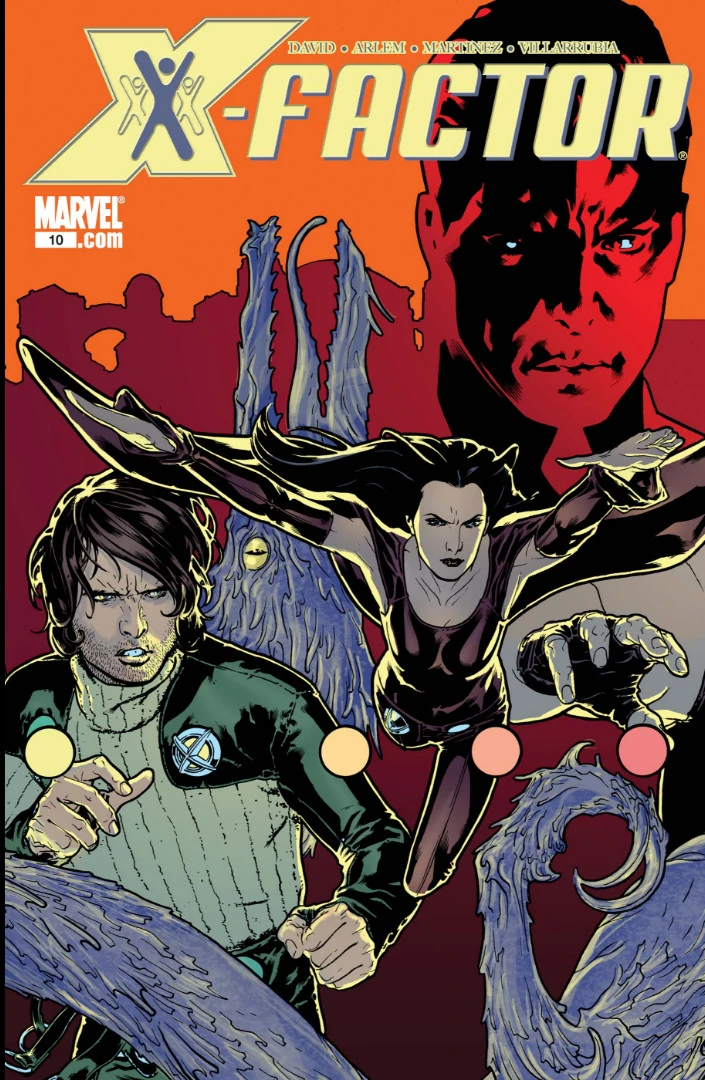
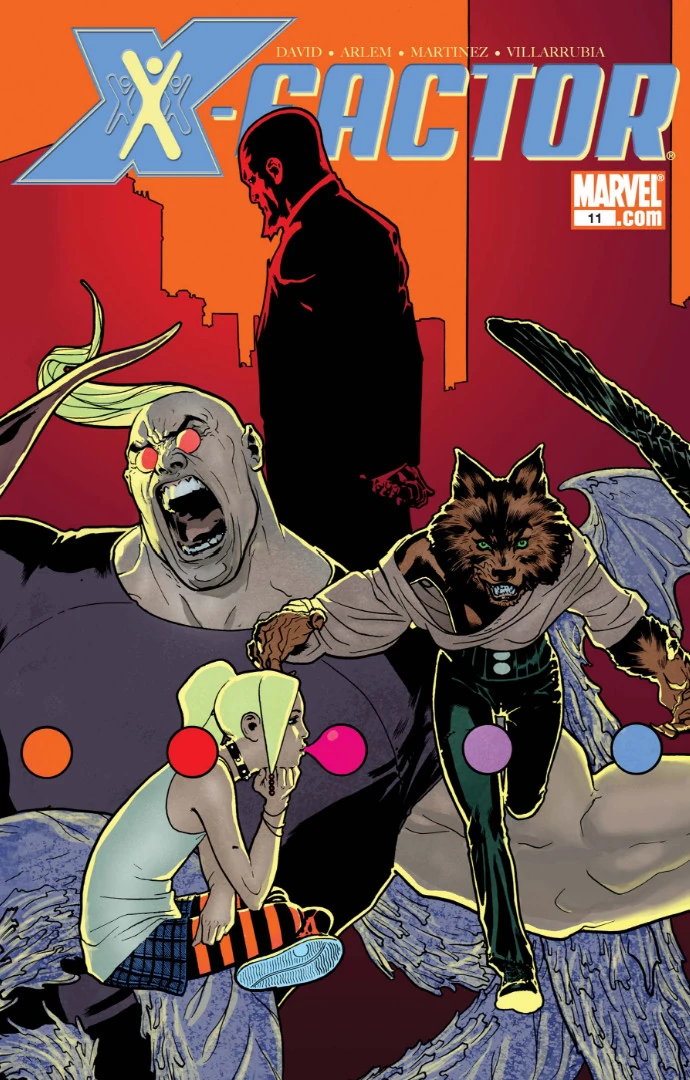
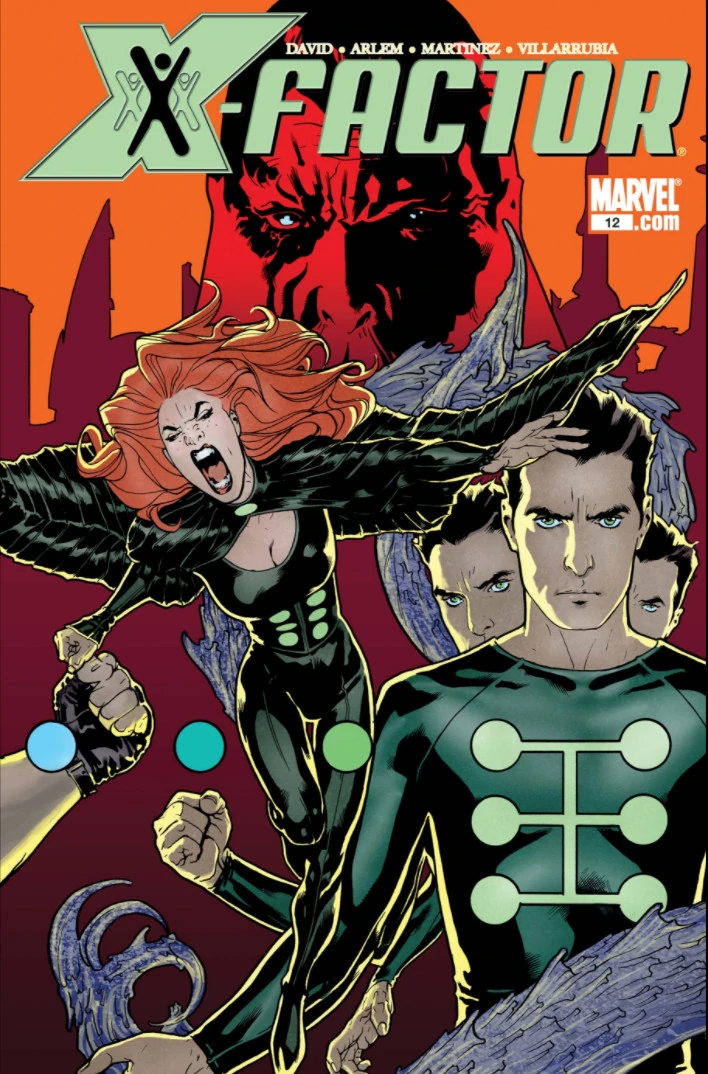

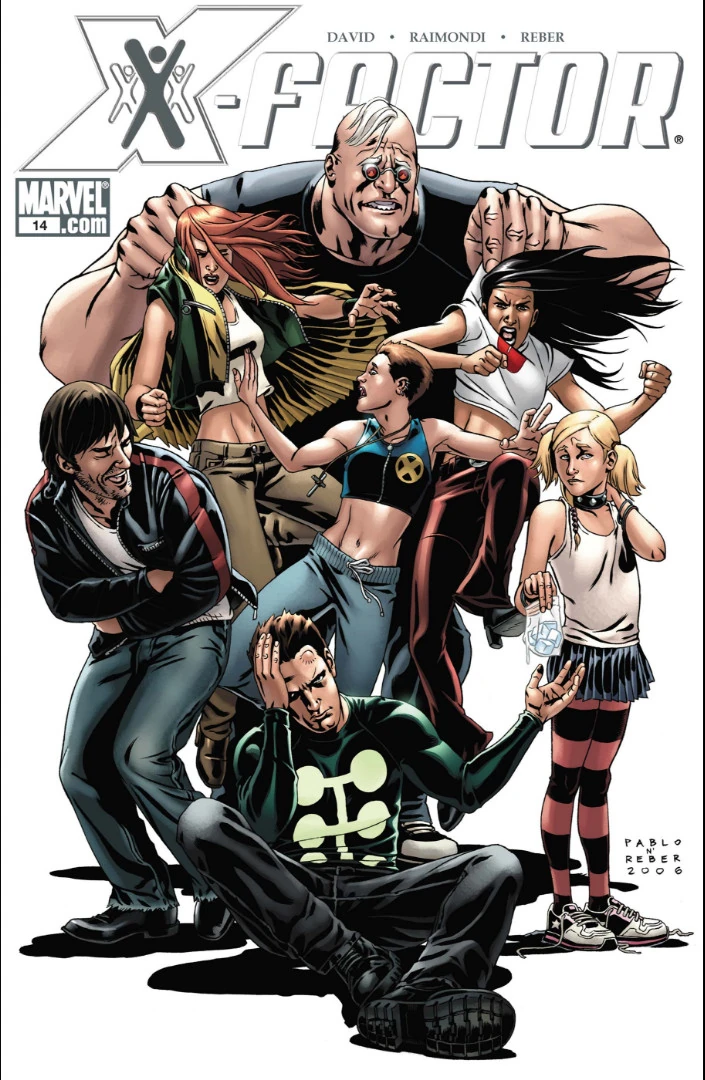
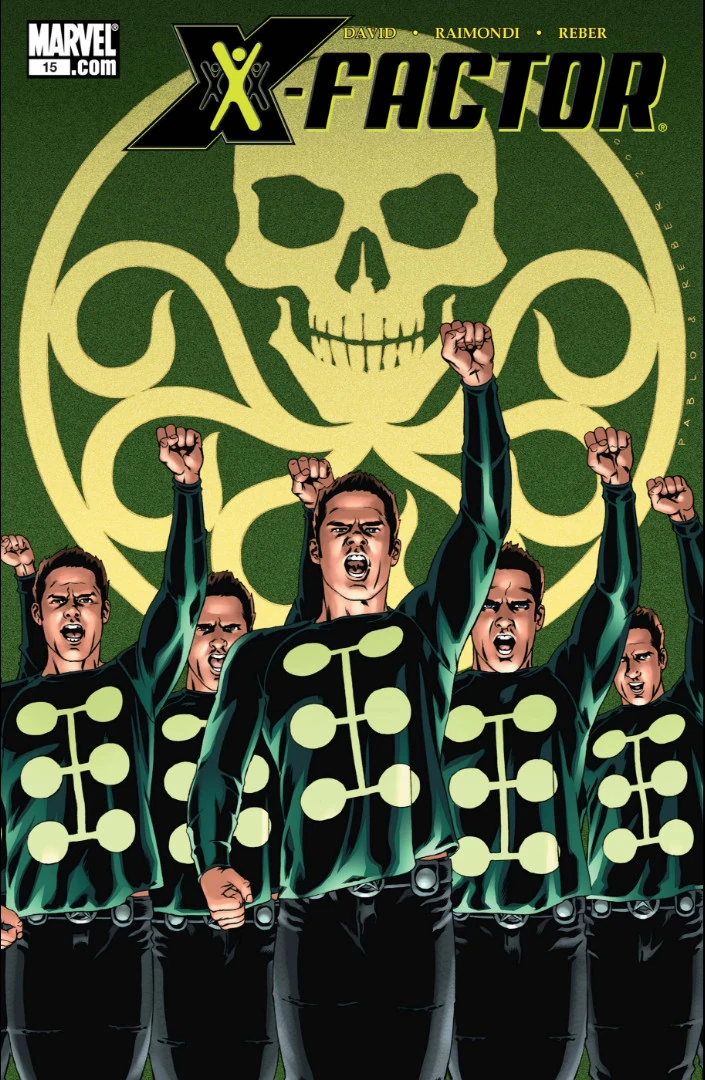
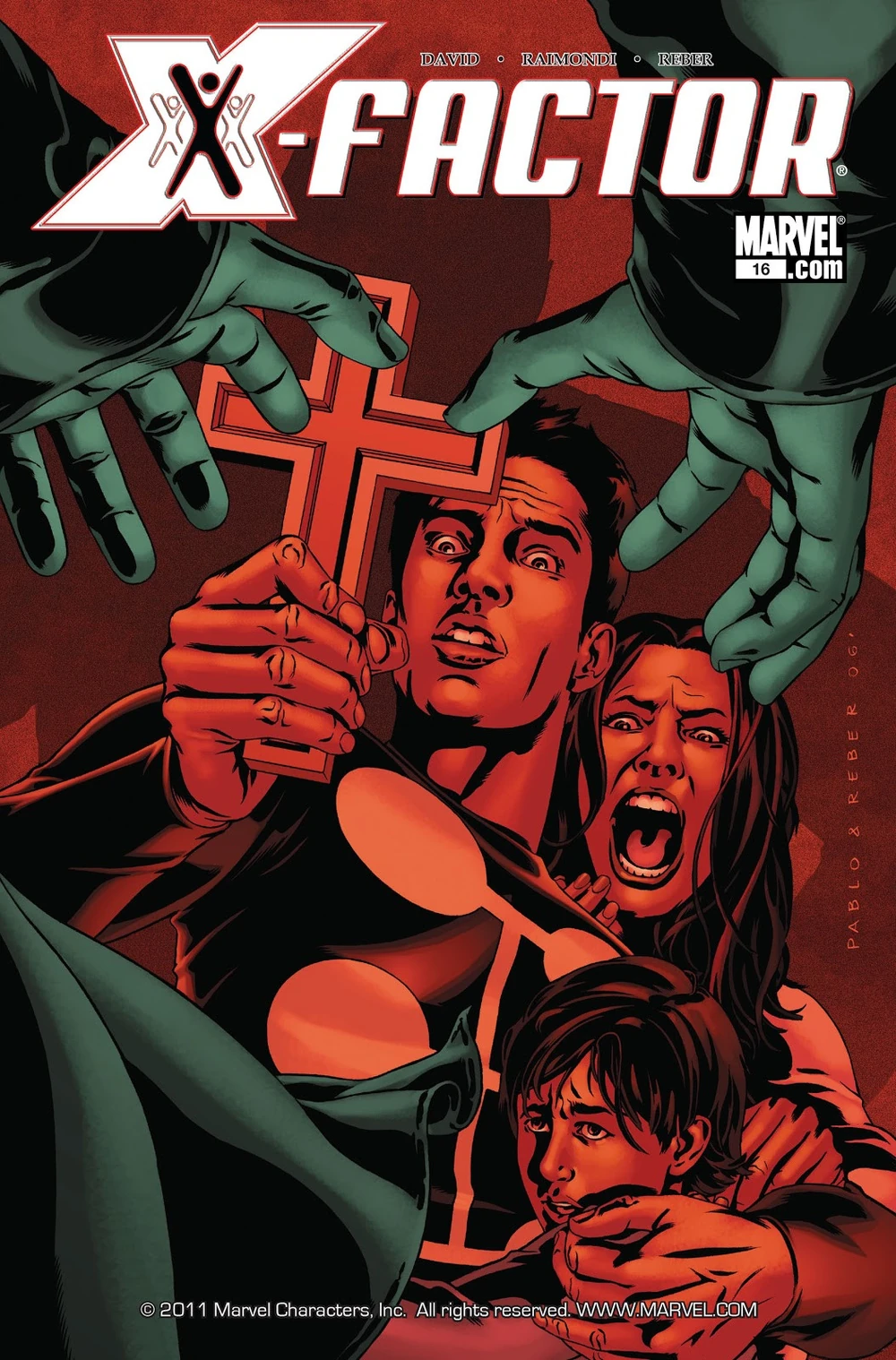
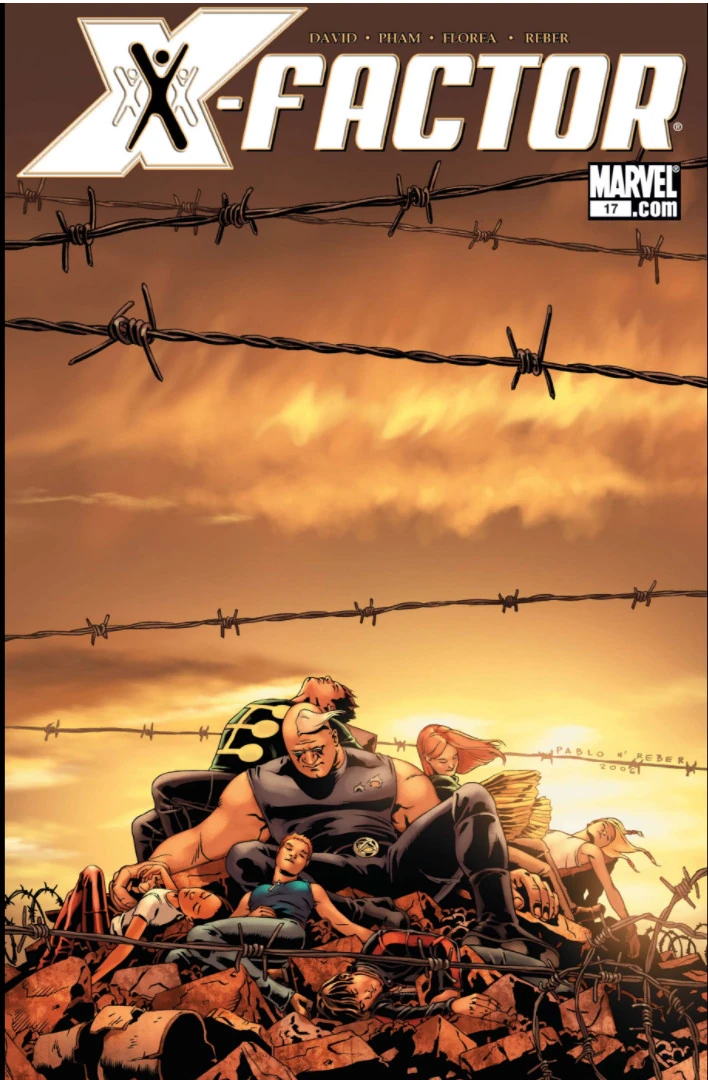
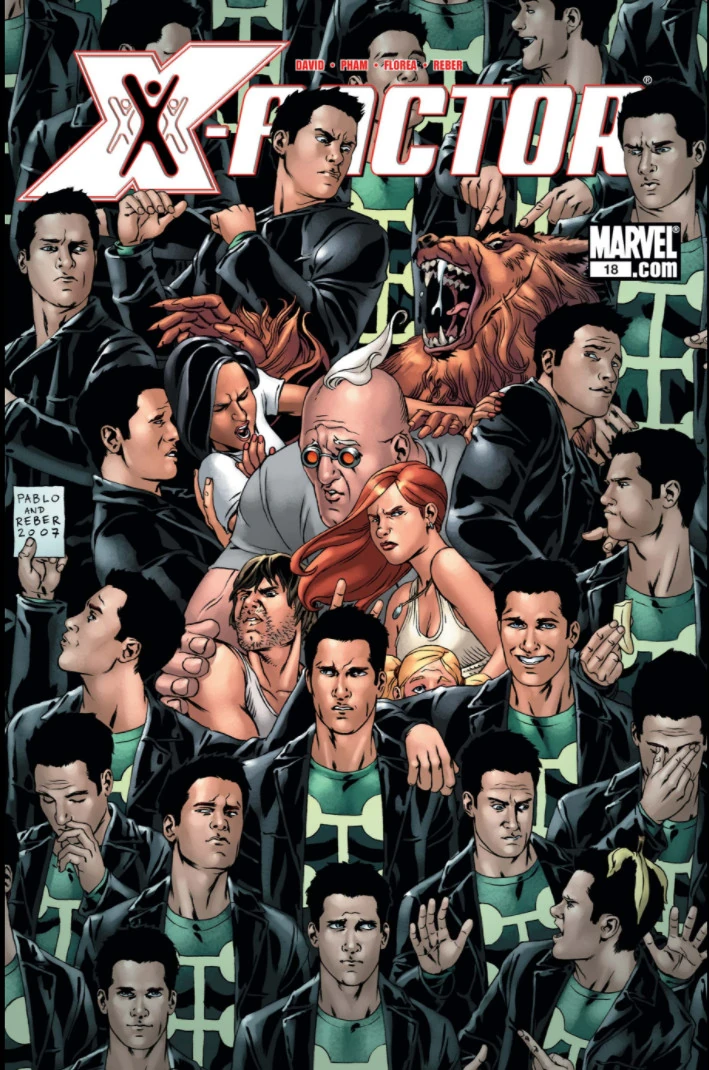
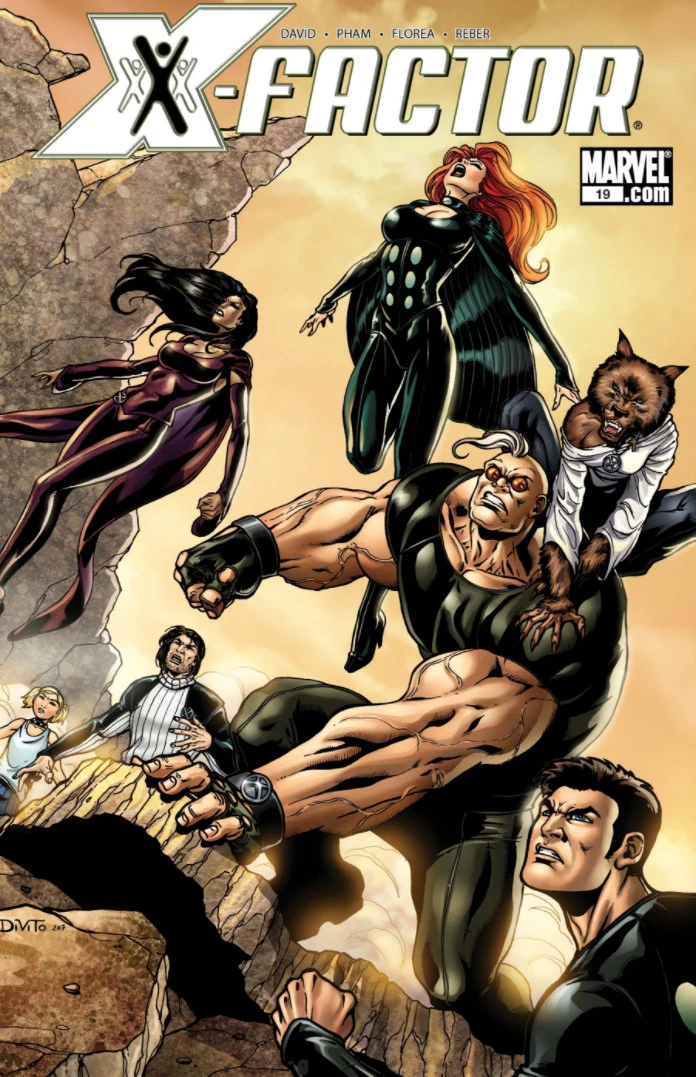
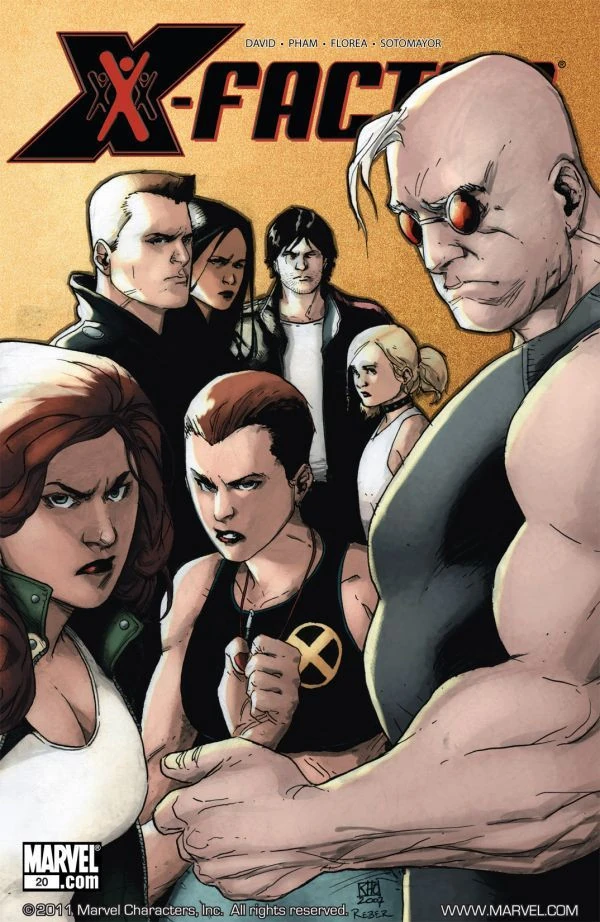
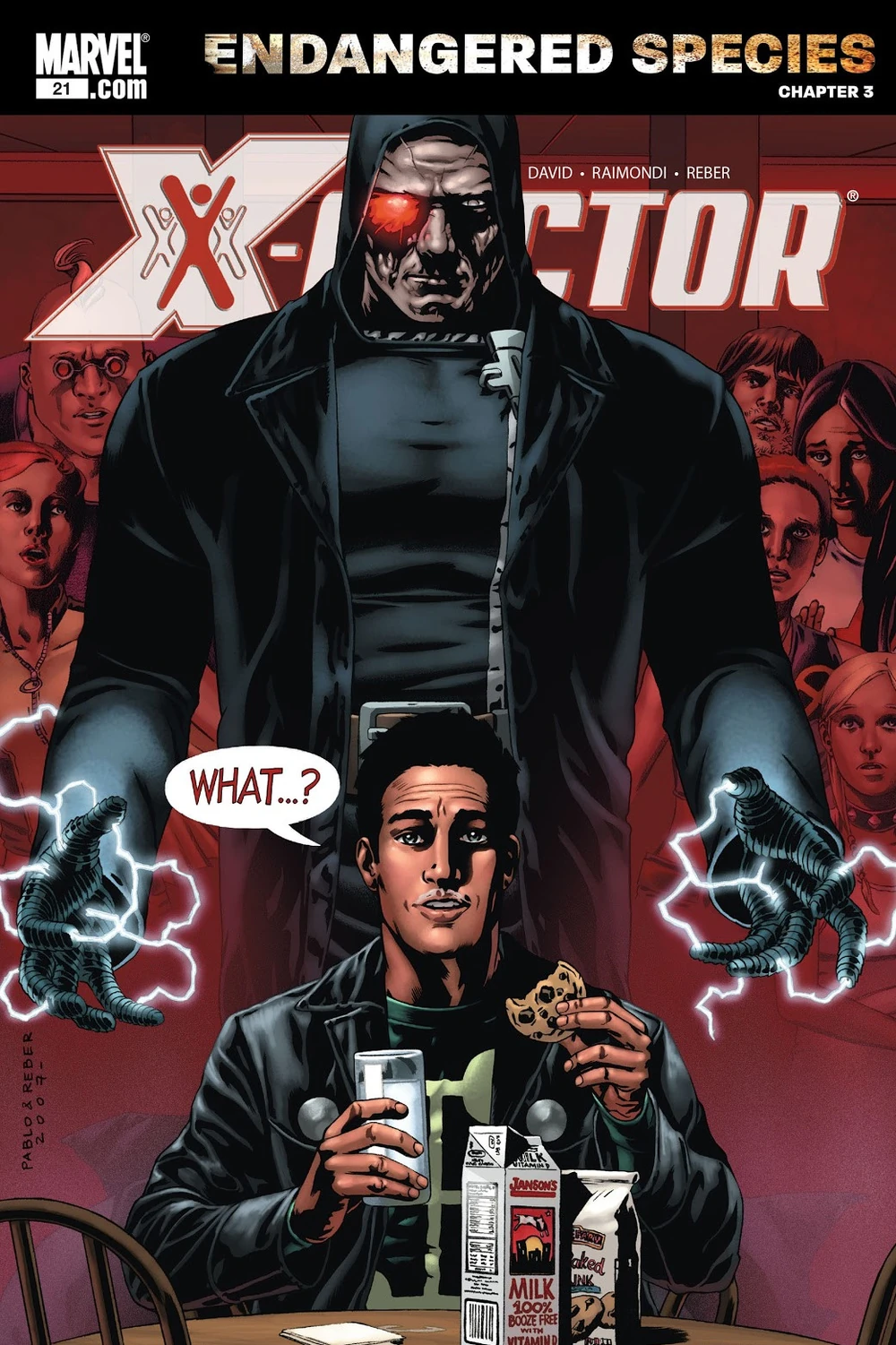

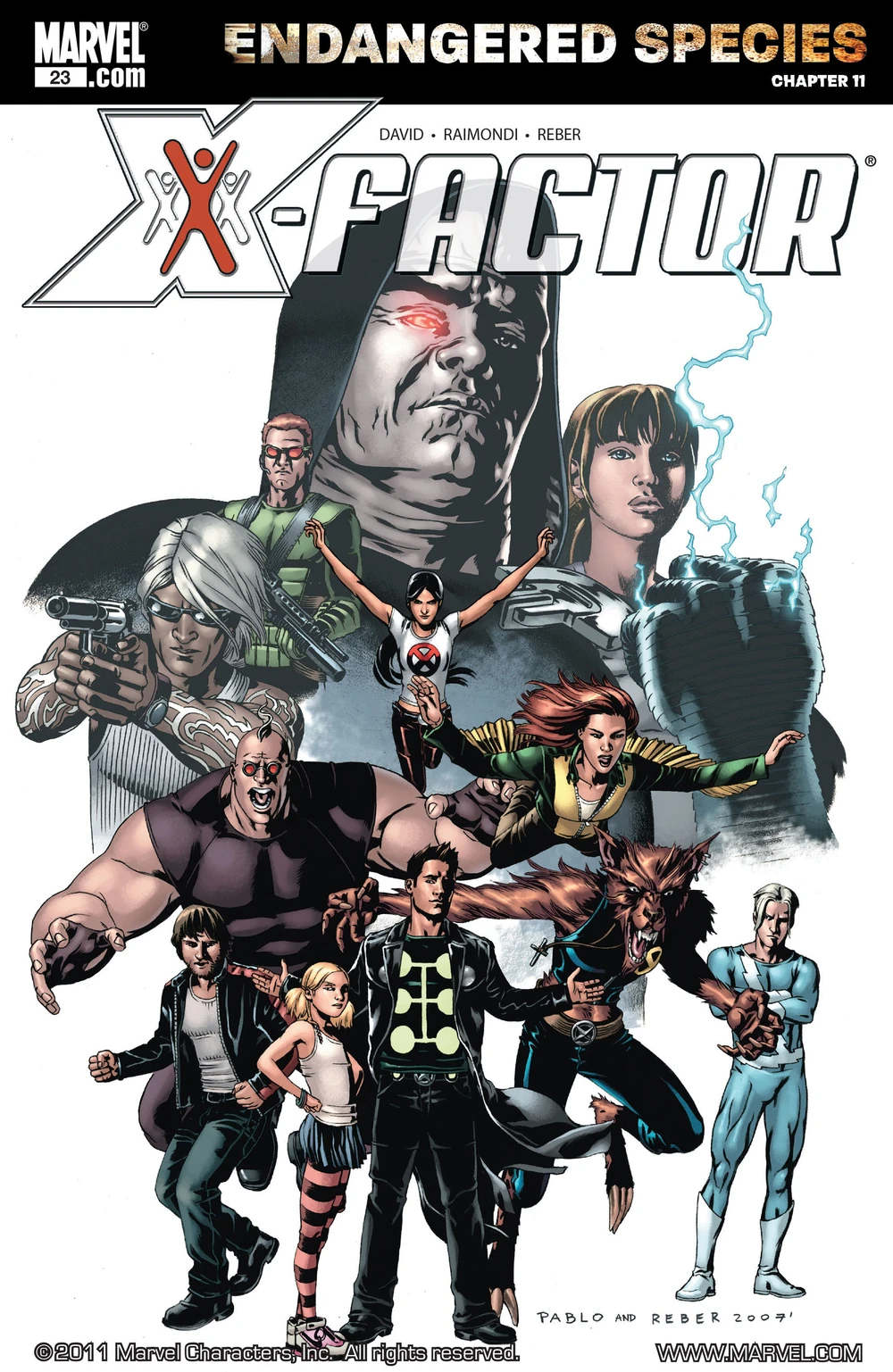
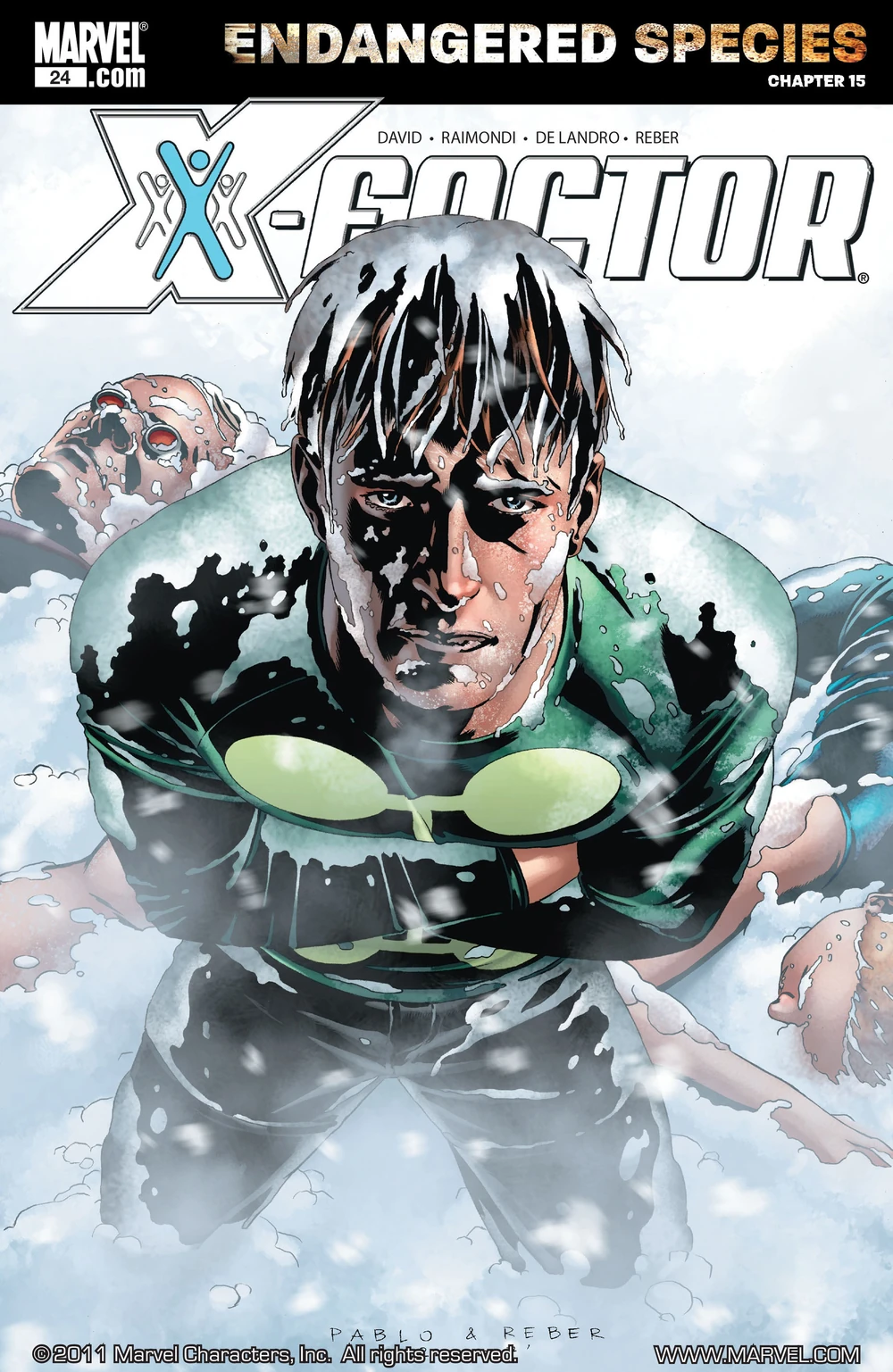


Comments